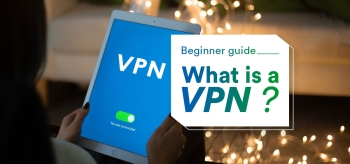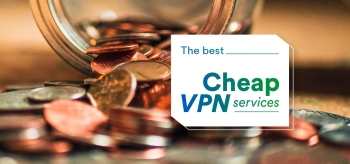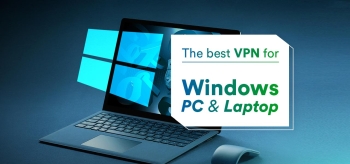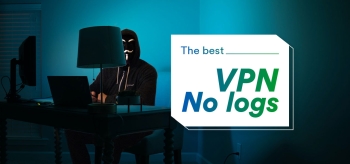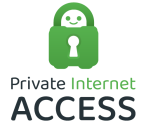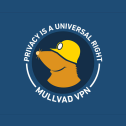Dependable VPN advice for online safety. Follow the big trends in online privacy.

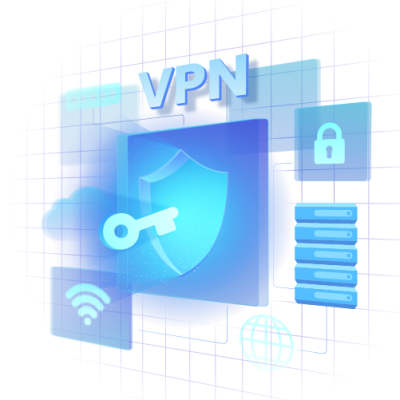
Use a VPN for an Unmatched Digital Experience
A VPN is arguably the most powerful tool in your fight against online privacy threats. Unless you install a VPN, your digital footprint remains up for grabs by spammers, hackers, your internet service provider, and unwanted third parties. In addition, you might feel vulnerable to the heavy monitoring from government agencies. A Virtual Private Network effectively deploys a set of foolproof security measures to protect your data. These measures include high-end encryption channels, no log policies, and split tunneling for data transfer.
VPNs let you bypass geo-blocking and access premium content anonymously from all over the world. VPNs are also extremely effective for streaming, gaming, and safe torrent downloading. You may also use it for playing otherwise restricted games online. A standard VPN lets users access a worldwide network of secured servers with a simple setup.
Content Unblocking
Access restricted content by using a server located in the permissible region. People frequently use VPNs to access digital libraries of blocked streaming platforms. It is also the perfect way to watch live sports streaming.
Anonymous Browsing
Browse the web like a ghost! A VPN effectively cloaks your IP, leaving no clue to your actual whereabouts. A standard VPN also employs a strict no-logs policy. This strategy cancels the chance that anyone would ever access your browsing history.
Better Security
Connect to a VPN server to deploy high-end security measures. The standard protocol uses AES 256-bit encryption, that even the most powerful supercomputers can’t break. VPNs also offer kill switch and DNS leak protection.
VPN Frequently Asked Questions
What is a VPN?
A VPN or a Virtual Private Network is software meant for protecting your online identity and safety. It’s almost like creating a safe and private tunnel for your internet traffic out of a public internet connection. So, as you download VPN software and connect to any of its servers, all the traffic coming to and leaving your device will flow through a secured tunnel. In addition, the VPN’s server will assign you a new IP and cloak your actual IP address or real geographical location.
How do VPNs work?
A VPN works by channeling your internet through the connected server. The first thing a user needs to do is to choose and connect to a suitable server according to the location they need to have.
A VPN encrypts your traffic. For example, present in the USA, you can connect to a server in the United Kingdom. Now, a VPN will route your traffic from the USA to the UK and then redirect the traffic to the website you want to access. As a result, the website will consider the server and not your device as the origin of the traffic reaching it. In simple words, it will consider the IP assigned by the server to detect your location. This is how a VPN works by giving you secure access to digital content globally, evading digital or Geo-restrictions. Leading VPNs have a wide physical and virtual server base and keep updating the server IPs. As a result, detecting or blocking the traffic flowing through those IPs becomes difficult for streaming sites like Netflix, Hulu, etc.
A VPN also works by keeping your data guarded through strong encryption standards. Leading VPNs further ensure that you enjoy maximum bandwidth by keeping your traffic away from the clutches of your internet service provider.
Are VPNs legal?
Using a VPN is legal in most countries because it is integral to your fundamental right to privacy. However, some restrictive governments do impose limitations on VPN use. Nevertheless, using a VPN for illegal online activity can land you into trouble on being caught.
Are VPNs safe?
Yes, VPNs are safe. Once connected to a VPN server, your data and traffic practically become impregnable. Further, leading VPNs with dedicated DNS on every server ensure that no third party has access to your online activities, even if they have your website URL. This is especially beneficial for business websites. Also, most premium VPNs today are equipped with kill switch and lock protection features. So, even if the connection to the VPN is broken for a while, there will be no risk of your IP leakage.
Along with protecting your IP and online activities from prying eyes, a VPN will also shield your data with reinforced encryption standards.
Why use a VPN?
You should use a VPN to ensure your browsing history stays under wraps from your ISP. The VPN also conceals your digital footprint from government agencies. Furthermore, people use VPNs to unblock restricted content, gaming, and torrents.
What is the best VPN?
We tried different VPNs. Our experts undertook various tests to verify the credibility of their claims. Our VPN review team recommends using ExpressVPN as the best service.
Will VPNs slow down my internet?
You will still use the services of your ISP for online activities even after you install the VPN. The VPN does not provide an internet connection. However, you can expect a slight drop of 10-20% in your internet speed while using a VPN since you would be connecting to overseas servers. However, a standard VPN can deliver good streaming speed by preventing bandwidth throttling.
How do we test VPNs?
We are a team of dedicated VPN enthusiasts working independently. We employ different kinds of tests to put VPNs to trial. These include the DNS leak, IP leak, and speed tests. Overall, our VPN expert team makes sure we use all VPNs personally before ranking them. Besides, we never accept paid rankings on VPNs.
How to choose a VPN?
You must choose only after reading and comparing unbiased VPN reviews. While reading these reviews, make a note of the headquarters of the VPN you want to use and its other features. Among the features, the most important things to consider should be its server base, safety standards, and how it protects your online anonymity. Other things to assess include the speed it offers and whether it works with versatile devices and OS or not.
You can even do more location-specific research to know if the VPN you are planning to choose works in your location or not. Many top VPN providers also offer a limited period free trial or money-back guarantee, and these trials are excellent options to test the VPNs personally and make your choice.
Where to find VPN coupons?
VPN companies often offer discount coupons for new users. These coupons are excellent options for subscribing to your favorite VPN. You can find the coupons published on the relevant page of a credible VPN specialist website.
What’s the difference between VPN service/network?
The VPN service refers to the uses you derive from using the secured internet access system. The network indicates the thousands of servers spread across countries worldwide.
What are the VPN limitations?
The VPN presents a highly secured system for browsing the web. However, you may face certain limitations using a free VPN. These VPNs may limit your server access and impose bandwidth caps. Furthermore, a free VPN service does not have good speed and may install malware in your system.
What are VPN alternatives?
There is nothing better than a VPN for general users accessing the internet. However, alternatives exist in the enterprise scenario. These include the SASE (Secured Access Service Edge) and the SD-WAN (Software Denied WAN).
Many people also suggest SmartDNS as an alternative to premium VPNs. They say that SmartDNS is a cheaper alternative when it comes to unblocking streaming sites. However, VPNs are more holistic and work as umbrella solutions to make the internet a more secure space for you. In other words, unlike VPNs, SmartDNS will never encrypt your data or mask your IP address for your online safety and anonymity.
Some even see the Onion Routing Project or TOR as the alternative to VPNs. VPNs can offer better safety, privacy, access, and transparency as they operate through a centrally-controlled server base. On the other hand, the onion routing project has a volunteer-run decentralized network. Thus, a VPN is a more integrated, safe, and user-friendly solution compared to TOR.
Many may suggest you use Proxy servers instead of VPN. It’s true that both services mask your IP address. But a Proxy Server does not encrypt users’ data. Therefore, using a VPN will always be a better option.
What are the differences between paid VPNs and free VPNs?
The concept of free VPNs seems very attractive until you realize that it is not. A free VPN is very unreliable and may not be able to do most of the tasks you intend the VPN to do. These protocols have highly limited server support, are unreliable, have data caps, and depend on ads to run their services. On the other hand, subscription-based VPNs offer you the guarantee of a secured and unlimited browsing experience.
Like and Share Our Website to Support Us

